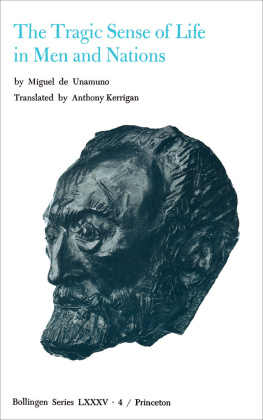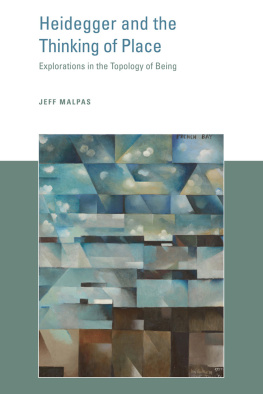Beistegui Miguel de - Heidegger [and] the political: Dystopias
Here you can read online Beistegui Miguel de - Heidegger [and] the political: Dystopias full text of the book (entire story) in english for free. Download pdf and epub, get meaning, cover and reviews about this ebook. City: London, year: 1998, publisher: Routledge, genre: Politics. Description of the work, (preface) as well as reviews are available. Best literature library LitArk.com created for fans of good reading and offers a wide selection of genres:
Romance novel
Science fiction
Adventure
Detective
Science
History
Home and family
Prose
Art
Politics
Computer
Non-fiction
Religion
Business
Children
Humor
Choose a favorite category and find really read worthwhile books. Enjoy immersion in the world of imagination, feel the emotions of the characters or learn something new for yourself, make an fascinating discovery.
- Book:Heidegger [and] the political: Dystopias
- Author:
- Publisher:Routledge
- Genre:
- Year:1998
- City:London
- Rating:5 / 5
- Favourites:Add to favourites
- Your mark:
- 100
- 1
- 2
- 3
- 4
- 5
Heidegger [and] the political: Dystopias: summary, description and annotation
We offer to read an annotation, description, summary or preface (depends on what the author of the book "Heidegger [and] the political: Dystopias" wrote himself). If you haven't found the necessary information about the book — write in the comments, we will try to find it.
Heidegger [and] the political: Dystopias — read online for free the complete book (whole text) full work
Below is the text of the book, divided by pages. System saving the place of the last page read, allows you to conveniently read the book "Heidegger [and] the political: Dystopias" online for free, without having to search again every time where you left off. Put a bookmark, and you can go to the page where you finished reading at any time.
Font size:
Interval:
Bookmark:
I find this book exceptional and unique in the way it poses and develops its topic within the setting of Heideggers thought. de Beistegui shows on the one hand that many efforts to derive Heideggers nationalistic politics from his philosophical position have been truncated and ill-conceived with regard to his philosophy and his problematic of the political. On the other hand, he shows the way in which Heideggers thought fails from within in confrontation with fascism and the Holocaust. It is a subtle and finely conceived study. Most of the work on Heidegger and political questions remains on the outside of his thought and lacks both the understanding and nuance one finds in this book.
Charles Scott, Pennsylvania State University
Recent studies of Heideggers involvement with National Socialism have often presented Heideggers philosophy as a forerunner to his political involvement, his thought being read in search of pro-Nazi sentiment in order to explain his personal political involvement. This has occurred often to the detriment of the highly complex nature of Heideggers relation to the political. Heidegger & the Political redresses this imbalance and is one of the first books to assess critically Heideggers relation to politics and his conception of the political.
Miguel de Beistegui shows how we must question why the political is so often displaced in Heideggers writings rather than read the political into Heidegger. Exploring Heideggers ontology where politics takes place after a forgetting of Being and his wish to think a site more originary and primordial than politics, Heidegger & the Political considers what some of Heideggers key motifs his emphasis on lost origins, his discussions of Hlderlins poetry, his writing on technology and the ancient Greek polis may tell us about Heideggers relation to the political. Miguel de Beistegui also engages with the very risks implicit in Heideggers denial of the political and how this opens up the question of the risk of thinking itself.
Heidegger & the Political is essential reading for students of philosophy and politics and all those interested in the question of the political today.
Miguel de Beistegui is a Lecturer in Philosophy at the University of Warwick.
General editors:
Keith Ansell-Pearson, University of Warwick
Simon Critchley, University of Essex
Recent decades have seen the emergence of a distinct and challenging body of work by a number of Continental thinkers that has fundamentally altered the way in which philosophical questions are conceived and discussed. This work poses a major challenge to anyone wishing to define the essentially contestable concept of the political and to think anew the political import and application of philosophy. How does recent thinking on time, history, language, humanity, alterity, desire, sexuality, gender and culture open up the possibility of thinking the political anew? What are the implications of such thinking for our understanding of and relation to the leading ideologies of the modern world, such as liberalism, socialism and Marxism? What are the political responsibilities of philosophy in the face of the new world (dis)order?
This new series is designed to present the work of the major Continental thinkers of our time, and the political debates their work has generated, to a wider audience in philosophy and in political, social and cultural theory. The aim is neither to dissolve the specificity of the philosophical into the political nor evade the challenge that the political poses the philosophical; rather, each volume in the series will try to show it is only in the relation between the two that the new possibilities of thought and politics can be activated.
Volumes already published in the series are:
- Foucault & the Political by Jon Simons
- Derrida & the Political by Richard Beardsworth
- Nietzsche & the Political by Daniel W. Conway
Miguel de Beistegui

First published 1998
by Routledge
2 Park Square, Milton Park, Abingdon, Oxon, OX14 4RN
Simultaneously published in the USA and Canada
by Routledge
270 Madison Ave, New York NY 10016
Transferred to Digital Printing 2006
1998 Miguel de Beistegui
Typeset in Sabon by Florencetype Ltd, Stoodleigh, Devon
All rights reserved. No part of this book may be reprinted or reproduced or utilized in any form or by any electronic, mechanical, or other means, now known or hereafter invented, including photocopying and recording, or in any information storage or retrieval system, without permission in writing from the publishers.
British Library Cataloguing in Publication Data
A catalogue record for this book is available from the British Library
Library of Congress Cataloging in Publication Data
Beistegui, Miguel de
Heidegger & the Political / Miguel de Beistegui.
p. cm. (Thinking the political.)
Includes bibliographical references and index.
1. Heidegger, Martin. 18891976Political and social views.
2. National socialism. I. Title. II. Series. B3279.H49B43 1997
320.092dc21 9648677
ISBN 0415130638 (hbk)
0415130646 (pbk)
For John Sallis
Prior to the question that alone always seems to be the most immediate and urgent, What is to be done? we must ponder this: How must we think? Thinking is indeed the proper acting insofar as to act means to comply with the essential unfolding of being.
Martin Heidegger, Die Technik und die Kehre
It would be best to talk about a revolution of the locality of thinking [der Ortschaft des Denkens]. Rather than revolution, even, we would simply need to hear displacement [Ortsverlegung].
Martin Heidegger, Vier Seminare
There will come a day, perhaps, when philosophers will no longer feel the need to write about Heideggers politics. There will come a day when, everything said and done, every single aspect of Heideggers life, every single detail of his work having come under the inquisitive and scrupulous gaze of those doctors with an eye for Heidegger-the-Nazi, the age of a freer and more fruitful relation to the Heideggerian heritage will finally emerge. In the meantime, everything happens as if the deluge of monographs devoted to a (more or less sincere) understanding of Heideggers relation to Nazism and to politics were not about to come to an end. Given the popularity of the topic in academia, one might even wonder whether there is a better way of securing for oneself access to the temple of academic respectability than through writing a book with Heidegger and politics on the cover. This inflation is certainly largely due to the fact that, for too long, and under the influence of many Heideggerians, most commentators remained remarkably silent on this issue. After this all too suspicious silence came the no less suspicious cacophony which today surrounds us, and in the midst of which the average reader finds himself or herself utterly bewildered, wanting to flee the Heideggerian premises at once, if not to sacrifice the Gesamtausgabe to the altar of Western good conscience.
Why, then, a further book on Heideggers relation to National Socialism?
Is it to throw yet another stone at his corpus, another way to make sure that he will remain forever buried? Or is it to keep his memory alive, to bring yet another stone, yet another inscription to his mausoleum? Or is it a matter of yet a third? A matter of keeping the matter of thinking alive, simply by reading Heidegger? And why read, if not because Heideggers text calls for thinking, provokes thinking, begs and cries out for thinking? So, in a way, yes, it will be a matter of salvaging Heidegger, his texts, that is, a matter of not letting the closure of thinking silently take place. Salvaging from what? From that simple equation which, willy-nilly, is slowly being accepted, an equation so simple and so convenient that it has become almost irresistible: Heidegger was a Nazi, Nazi from the start, Nazi till the end. To this equation, it is not a question of opposing a counter-proposition, the revisionist version of the first equation: Heidegger was not a Nazi, he never was. This, too, is impossible: the evidence is too massive, too brutal: devastating. Heideggers involvement was, at least for a few months, total and unconditional.
Font size:
Interval:
Bookmark:
Similar books «Heidegger [and] the political: Dystopias»
Look at similar books to Heidegger [and] the political: Dystopias. We have selected literature similar in name and meaning in the hope of providing readers with more options to find new, interesting, not yet read works.
Discussion, reviews of the book Heidegger [and] the political: Dystopias and just readers' own opinions. Leave your comments, write what you think about the work, its meaning or the main characters. Specify what exactly you liked and what you didn't like, and why you think so.

![Beistegui Miguel de Heidegger [and] the political: Dystopias](/uploads/posts/book/181018/thumbs/beistegui-miguel-de-heidegger-and-the.jpg)










